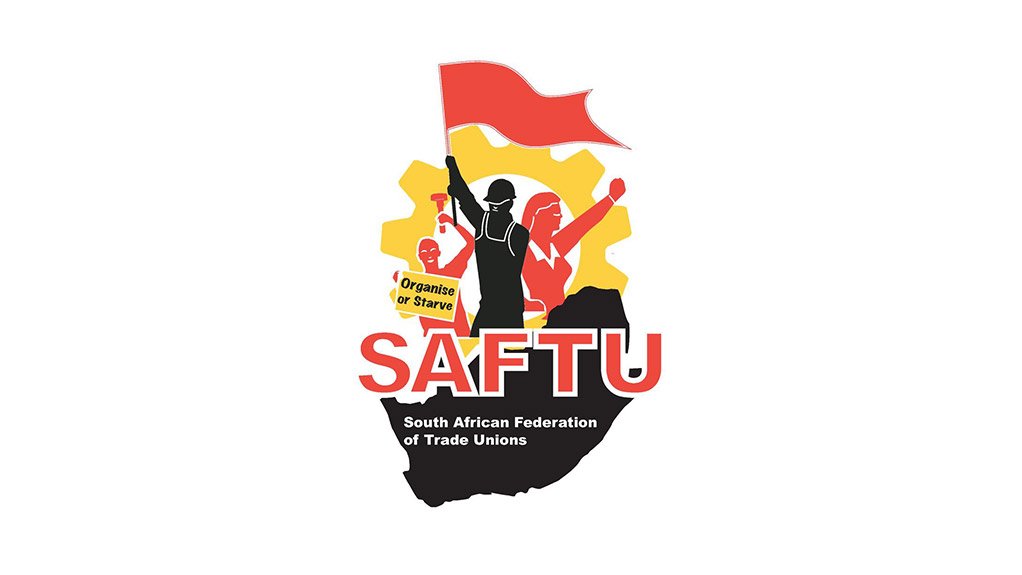/ MEDIA STATEMENT / The content on this page is not written by Polity.org.za, but is supplied by third parties. This content does not constitute news reporting by Polity.org.za.
The South African Federation of Trade Unions is disgusted at the announcement that the ‘wages’ paid to participants on the Expanded Public Works Programme (EPWP) are to be raised by R4.41 in line with the inflation rate, to just R88 per day.
This pitiful amount will continue the ruthless exploitation of these most vulnerable workers - young, unemployed and desperate for anything to keep them alive.
SAFTU has condemned the proposed national minimum wage of R20 an hour or R3 500 a month agreed at Nedlac as a poverty wage which is nowhere near enough for anyone to enjoy a decent life.
Yet the R88 these EPWP workers are to get works out at just R11 an hour for an eight-hour day, or R1 760 a month, assuming that they work the full month, nowhere even close to the low level that the government itself defines as an acceptable minimum wage.
R88 a day should not even be called a ‘wage’; it is little more than a tip, even less than they might receive begging on street corners! It is a form of virtual slavery.
The plight of these young workers is a symptom of the massive crisis of runaway unemployment and the bloodbath of formal jobs, which has left millions in deep poverty, and thus even more vulnerable to unscrupulous employers who believe that any job is better than none and workers should be grateful to take whatever job they can get at any price.
What is even worse however is that the biggest employers of EPWP slaves are not greedy capitalists but government institutions. Some of the key sectors where EPWP is implemented include early childhood development centres, home community-based care and road maintenance projects.
These are all jobs which require skilled and well-trained workers, who should be paid a wage which reflects the level of responsibility that such jobs require. The Cape Town Metropolitan Police have even recruited EPWP participants as cadets, exposing them to danger, and doing work for which only well-trained officers ought to be employed.
This use of cheap labour reflects the same attitude we have seen revealed in the Esidimeni scandal, where cutting costs overrode all other considerations - the safety, well-being and ultimately the lives of the most vulnerable South Africans.
Of course young people should be employed in these areas, but as proper employees with full rights, job security, thorough training and a decent wage.
The big danger is however that there will be even fewer such jobs in the future if the use of EPWP continues or expands. It will lead to more real jobs disappearing and replaced by EPWP and other casualised workers and those employed by labour brokers.
This presents a huge challenge to the trade unions, since such workers, because of the precarious nature of their work are difficult and recruit and organise, yet they need the protection of a union more than any others.
That is why SAFTU made it a top priority to organize the unorganised, marginalized and vulnerable workers, and it is already starting to make inroads into the ranks of these workers.
When we hit the streets in the coming weeks we shall do everything possible to involve the workers and highlight the special challenges they confront.
Issued by SAFTU
EMAIL THIS ARTICLE SAVE THIS ARTICLE ARTICLE ENQUIRY
To subscribe email subscriptions@creamermedia.co.za or click here
To advertise email advertising@creamermedia.co.za or click here











